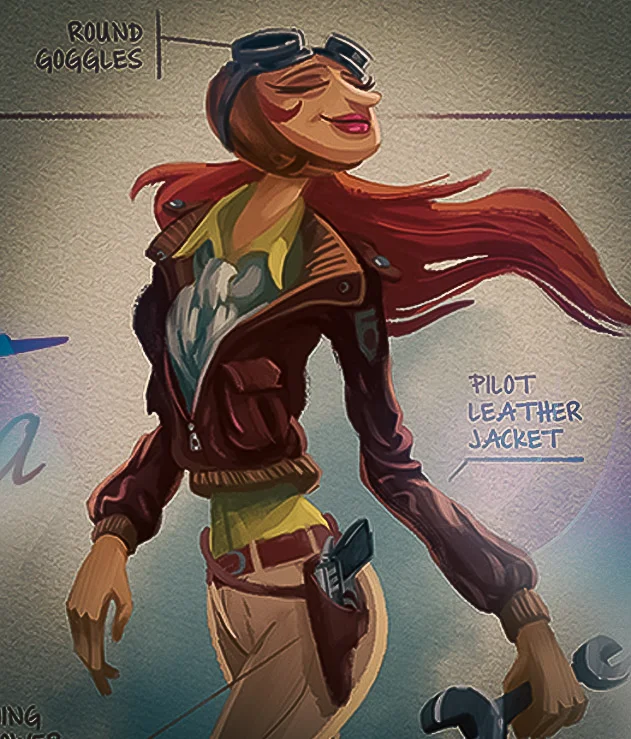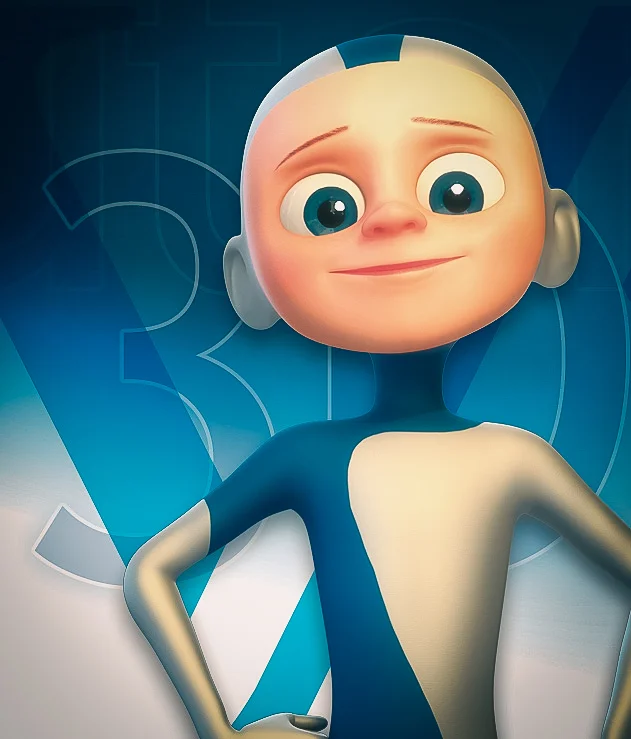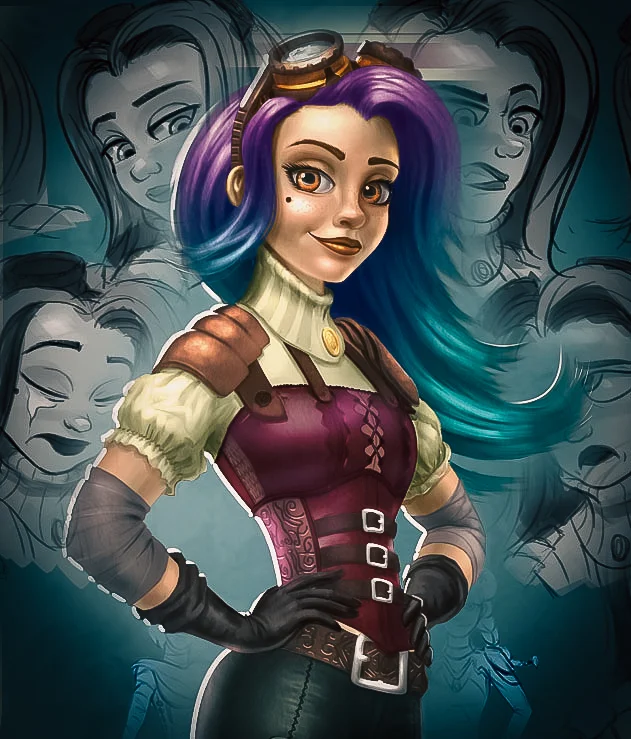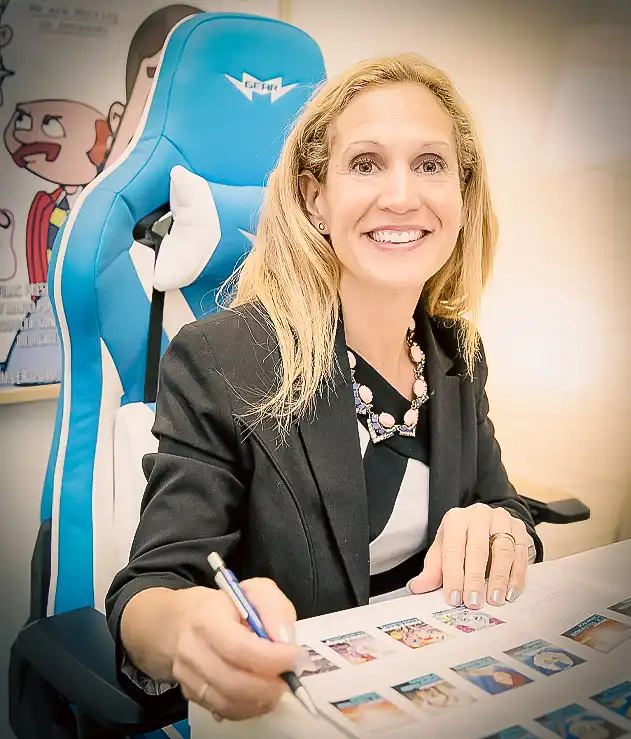
The Complete Beginners Guide to Concept Art
10 Facts About Concept Art to Impress Your Friends
What is Concept Art and what do Concept Artists do?
Concept Art is a visual representation of an idea for something that has yet to come into existence. It is the creative process used in animated feature films, video games, and television to design characters, vehicles, props, and environments.
Concept Art is different from illustration for marketing, storyboarding, sequential drawings, or fine arts. In concept art, one concept is developed at a given time, unlike illustrations for marketing a product whose purpose is to sell or sequential drawings or storyboarding whose goal is to show the entire scene.
Moreover, concept art can be used for live-action films, stage plays, and fashion shows, unlike fine arts, which is meant for traditional media like painting and sculptures. In essence, concept art is about creating ideas in a visual form and narrative. In digital entertainment, concept art is made for commercial purposes, meaning that the concept art will be part of a high-profile movie, TV show, or video game.
1. Does the public recognize Concept Art?
The tasks involved in Concept Art are behind the production, and the public rarely knows concept artists. Nonetheless, people inside a film or a gaming studio recognize select concept artists, as their role is essential, and the success heavily relies on what concept artists produce. Hence, concept artists are well recognized within the art industry.
2. Where can Concept Art be seen or found?
Concept art can be seen abundantly in video games, films & TV, architecture, advertising, graphic designing, and print publications. In addition, concept Artists produce general sketches or ideas of props, buildings, characters or vehicles. So, concept art is a creative field that continues to grow in popularity.
3. What skills should I have to become a professional Concept Artist?
The top list of skills you should have to become a concept artist includes drawing, sketching, understanding the anatomy of humans and animals, and using digital tools like Photoshop, Maya, and ZBrush. Lastly, being a great team player and collaborator, you'll have to work closely with various departments in the preproduction phase.
4. Is it easy to learn Concept Art?
It is straightforward to start learning concept art because of its minimum requirements, but you need to be determined to become a professional concept artist.
For instance, aspiring concept artists only need pencil and paper to translate their ideas into drawings. But, as they advance in their learning, they need to train in various new fields and tools like sculpting, digital tools, 3D modeling and others.
So, learning concept art takes patience and perseverance. But, with practice, artists will understand the principles of concept art, and with consistent effort and a positive attitude, they will become professionals.
5. As a beginner, where can I learn Concept Art?
Beginners generally find free tutorials on the internet, yet these tutorials can be deceiving and form bad habits. We recommend that you join FAME, a platform that teaches the art and science behind movies and games and in which industry professionals create the learning materials.
VANAS+ gives aspiring concept artists the opportunity to self-study at their own pace and time. Additionally, it lays out proper foundations to become successful concept artists.
6. Is there a professional Concept Art School?
Some schools teach concept art, yet many schools won't teach it properly. VANAS is the first school that opened an accredited Concept Art diploma program in 2009, and its graduates work in well-known animation and video game studios around the world.
As a beginner, we recommend taking an introductory course in concept art. This way, you'll experience the role of a concept artist. Once the course is complete, you can decide if this is a career you want to pursue.
As for finding concept art schools, start by searching for Concept Art programs and list your top 5 schools you would like to attend. Always check the institution's reputation by accreditation, student reviews, and student portfolios. Tuition is an important factor, but the best schools offer scholarships to talented aspiring artists.
7. What should I do as a Concept Art student?
Being accepted in a concept art school is promising, but it doesn't guarantee that you'll become a professional.
For example, the more work you put into your art, the more productive you'll become. Drawing skills are essential but are not the only factor to succeed.
Successful students work hard on their assignments, listen to teachers, and can follow instructions. When attending a professional concept art school, you'll be evaluated in aspects like punctuality, ability to meet deadlines, creativity, reliability, and accountability.
Once you are accepted into a concept art program, do your best to improve yourself daily in drawing, creativity, imagination, and people skills.
8. Are there jobs for Concept Artists?
Studios regularly hire concept artists, yet their portfolio must fit their production style. For example, drawing and imagining are ordinary skills; so many artists want to apply them to concept art jobs. In a way, it increases competition.
However, studio recruiters recognize outstanding abilities and look for styles that work well with their current animation, visual effects, and video game productions.
Concept artists start as junior designers and become art directors throughout years of experience.
9. Do Concept Artists travel for work?
Experienced concept artists usually travel for research purposes but only if it's necessary for the project. For example, if a project involves animated animals, concept artists go to their local zoo to draw and understand animal anatomy. Another example is that concept designs are sent overseas, and concept artists may need to visit the overseas studio to ensure the designs are followed.
10. What is the salary of a Concept Artist?
Concept artists are highly paid, yet satisfaction comes from seeing your work accepted by the audience. That is, the intrinsic rewards overcome the extrinsic rewards. In addition, your artwork will be part of global productions such as in movie theatres, TV, or video games.
Additionally, according to payscale.com, junior Concept Artist's salaries range from $30,000 to $44,000 a year. And this is just the starting salary; as you gain experience, pay increases to $70,000 per year or higher, plus receiving the studio benefits and being paid for what you love to do. Moreover, established concept artists decide to be self-employed and freelance for various projects.







